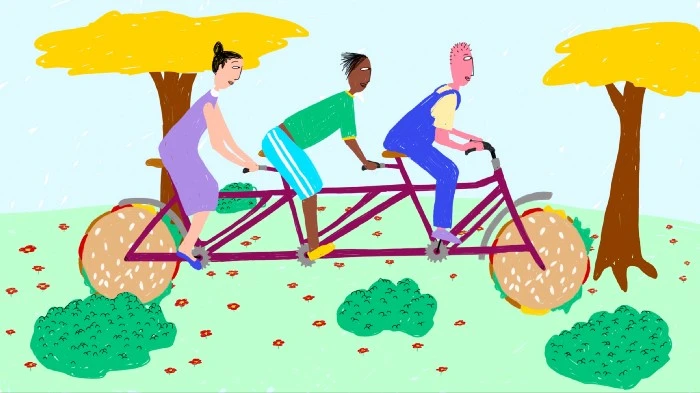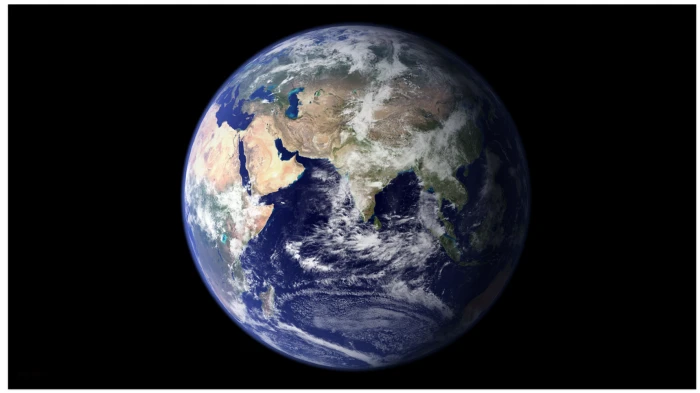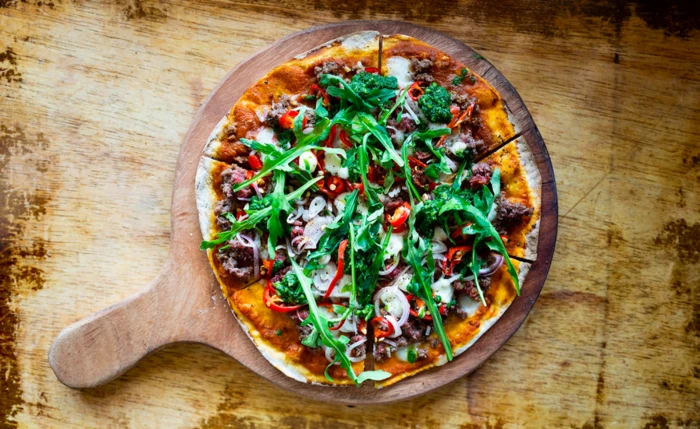Make tofu. Cook dal. Eat ImpossibleTM
By Rachel Konrad, Chief Communications Officer, Impossible Foods

(opens in a new tab)For decades, Vandana Shiva has been an outspoken activist against genetic engineering and the products that result from it — such as crops that could greatly reduce the incidence of blindness and help farmers feed their communities in an era of climate-change driven uncertainty. She’s disregarded proof from top scientists that GM crops are safe(opens in a new tab) and, instead, called for exclusively organic farming practices—drawing increasing criticism from Indian farmers and opinion leaders(opens in a new tab).
This week, Ms. Shiva attacked Impossible Foods in an anti-genetic engineering op-ed in The Ecologist. We’ve been transparent about our use of genetic engineering(opens in a new tab), so we’ve grown accustomed to attacks from anti-genetic engineering activists. But this latest call for a boycott of the Impossible Burger is particularly illogical and ironic — especially given that its author seems to genuinely share our mission to make the world’s food systems sustainable(opens in a new tab). Ms. Shiva, a long-time vegetarian, also seems to agree with us on how to save our withering natural ecosystems: eliminate animal agriculture — the leading threat to our planet’s health and our own.
But here’s where we differ.
Environmentalists, including Ms. Shiva, have been begging people for decades to reduce or eliminate animal meat from their diets, replacing it with garbanzos, lentils and other plant-based foods. They’re fighting righteously for a noble cause. But using guilt and “eat-like-me” rhetoric to reduce consumption of animal meat is simply not working.
Despite increasing calls from activists for a more plant-based diet, worldwide meat production has tripled over the last four decades, according to Worldwatch Institute(opens in a new tab). Global meat production is projected to double again by 2050, according to the UN Food and Agriculture Organization.(opens in a new tab) This is a global catastrophe, and it won’t be averted by extolling the virtues of tofu and dal.
We have a different strategy.
Instead of expecting people to give up meat, we accept that people will continue to crave it. And instead of vilifying meat and its consumers — a tried-and-failed strategy that divides communities without slowing the destructive impact of animal farming — we’re provide omnivores with a better option: delicious, nutritious, safe and affordable meat made from plants, with a vastly reduced impact on climate and biodiversity. Instead of telling people what to eat, we offer them a better option and let them make their own choices.

The use of animals to produce meat is by far the most destructive technology on Earth today. The greenhouse gas footprint of animal agriculture rivals that of every car, truck, bus, ship, airplane, and rocketship(opens in a new tab) combined. Animal agriculture pollutes(opens in a new tab) and consumes more water than any other industry(opens in a new tab). The global meat, fish and dairy industry is overwhelmingly the primary driver of the ongoing meltdown(opens in a new tab) in diverse wildlife populations and ecosystems on land and in oceans, rivers and lakes. To avert ecological disaster, our most urgent priority must be to reduce or eliminate the use of animals as technology in the food system.
That’s precisely our mission(opens in a new tab) — and it’s one that we think Ms. Shiva and her fans wholeheartedly embrace, despite our tactical differences.
We need to set the record straight about a couple things Ms. Shiva gets wrong about the Impossible Burger.
We’re working to satisfy the global demand for meat by producing meat for meat lovers, from plants, with a tiny fraction of the resource consumption and environmental impact of today’s animal-derived meats. We love vegetarians and vegans: Compared to omnivores, their impact on climate and biodiversity is already tiny(opens in a new tab). And frankly, if everyone were eating virtuous tofu and dal in place of meat, Impossible Foods wouldn’t exist and wouldn’t need to exist.
The Impossible Burger is for omnivores and meat-eaters — not vegans and vegetarians. More than 90% of Impossible Burger consumers regularly eat meat from animals. They’re not choosing between an Impossible Burger and tofu; they’re choosing between meat made from plants and meat made from a cow. If you like tofu and dal and are happy to avoid meat from animals, by all means keep it up! But if you love meat and intend to keep consuming it, then please try Impossible™ meat in your pizza, pork dumplings or meatballs.

The Impossible Burger has similar nutritional value to ground beef from cows — without the destructive impact on public health and the environment. And if you care about avoiding catastrophic climate change and preserving biodiversity and healthy natural ecosystems, we should be allies, not enemies.
For those who care about the impact of pesticides on wildlife and biodiversity, here are the facts:
The Impossible Burger has a pesticide footprint 8-fold lower than conventional ground beef made from cows. It also has a 25-fold lower land footprint, 8-fold lower water consumption, 12-fold lower water pollution and 9-fold lower GHG emissions — based on a life-cycle analysis conducted by Quantis, a respected, independent auditor.
The overwhelming majority of the corn and soybeans in the United States and the world is fed to livestock to produce meat. It’s precisely our appetite for meat that drives most of the mono-cropping and pesticide use that Ms. Shiva blames as the biggest threat to biodiversity. Since making meat from plants is vastly more efficient and less wasteful(opens in a new tab) than feeding crops to cows, pigs and chickens and consuming their flesh, the success of our mission would actually greatly reduce demand for corn and soybeans and the pesticides and fertilizers that are used to promote their growth.
Aside from those corrections, we applaud Ms. Shiva for a career spent trying to get people to be more conscious about their food.
We understand what she’s trying to convey with her latest mantra, “Boycott the GMO Impossible Burger. Make tofu. Cook dal.” Two-thirds of it is spot-on.
But if she were to take the time to understand our mission and the benefits to our planet, climate and biodiversity, she’d replace that mantra with: “Make tofu. Cook dal. And if you want meat, eat Impossible™.”
Like the Impossible Burger, tofu and dal are products of human ingenuity — brilliant ways to transform ingredients from plants into delicious, nutrient-dense foods. The Impossible Burger isn’t a threat to tofu or dal; it’s a 21st century addition to the same plant-based cornucopia. Activism alone hasn’t made a dent in animal meat consumption. By welcoming consumers instead of shaming them, we’re on track to accomplish our shared mission.
If you want to read more about our company, you’re in the right place. Our blog(opens in a new tab) includes answers to all questions about the extraordinary safety record of our key ingredient(opens in a new tab), our use of genetic engineering(opens in a new tab), and our mission to replace the use of animals as food technology(opens in a new tab). After you digest all that info, we’re sure you’ll want to find the closest place to get an Impossible Burger(opens in a new tab).
Questions? Contact us at [email protected]. If you’re a member of the media and want more information, send an email to [email protected](opens in a new tab).